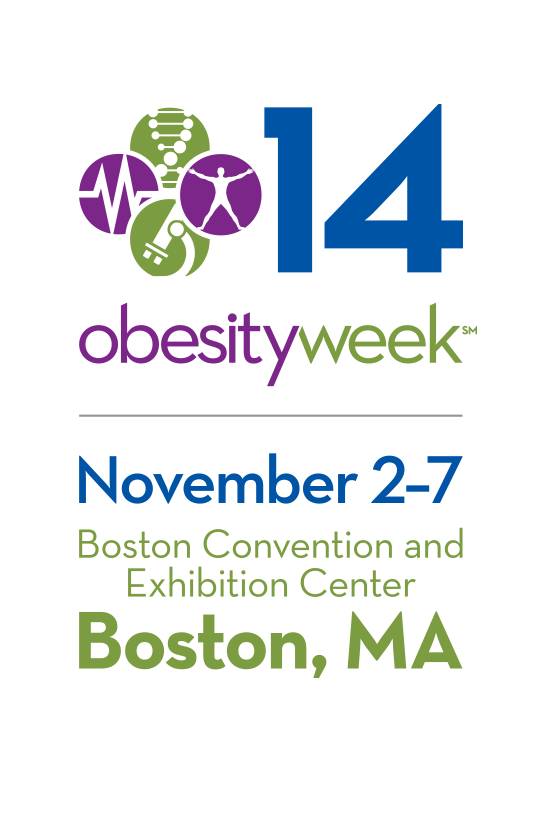-
Content Count
143 -
Joined
-
Last visited
Posts posted by Elizabeth Anderson RD
-
-
Hi there! You might know me from some of my pieces in the magazine. I’m a registered dietitian in southern NH. Bariatric Pal’s CEO, Alex Brecher was kind enough to allow me the ‘reporter at large’ role for BariatricPal.com at this year’s Obesity Week.

This is the second annual global convention for obesity experts & bariatric healthcare providers and vendors… This year we’re in Boston, MA. I am attending lectures, mixing, mingling and learning the latest in the science, treatment and prevention of obesity. I’ll share what I learn throughout the week on BariatricPal.com, CrackerJack Nutrition’s Facebook page and Twitter. This information is important for all of us. I’ll keep the medical gobbledy-goo to a minimum and simply give you the straight scoop. Stay tuned!
-
If 100% of the RDA is good isn't 500% even better? Not so fast. Bariatric dietitian Elizabeth Anderson tells us about the flip side of Vitamin deficiency.

You take your supplements every day because you know deficiencies are a risk following weight loss surgery. You might also know that insufficient levels of certain Vitamins and minerals can slow down your metabolism—and your weight loss. Have you ever wondered though about that saying, “Too much of a good thing, isn’t so good?” While it’s true that deficiency is a concern for health, vitamin and mineral excesses can be very serious as well.
One vitamin that hasn’t historically been a major concern for bariatric patients is B6. That’s changing however as dietitians across the country are reporting more and more cases of B6 toxicity.
Here’s what’s happening: B6 is often part of the B complex supplements most patients take every day. There’s also B6 in most Multivitamins. Additionally, more food manufacturers are fortifying their products with vitamins (like B6!) to appeal to health-conscious consumers. [Fortifying means adding vits/mins that weren’t there in the first place.]
The Recommended Daily Allowance or RDA for B6 is 1.3 milligrams to 1.7 milligrams per day for adults. The maximum daily intake is no more than 100 milligrams/day. When you start adding up your intake, it’s easy to see how you could be getting more than you need—a lot more!
What about the B6 naturally occurring in food? Typically, natural sources of vitamins and minerals in food and drink are not the cause of toxic levels in humans.
Signs and symptoms of excessive B6 include pain and numbness of the arms, legs, fingers and toes. In severe and advanced cases, difficulty walking has been reported. Even more alarming? Some of these symptoms are irreversible if not caught early.
So take the time to do a quick check of your personal supplement intake—not just B6. Share any concerns with your healthcare provider.
One thing is for sure. You can’t know where you stand without regular bloodwork. Make sure you get blood taken at all the scheduled times following your bariatric surgery. Often, it takes more than a year for deficiencies and/or toxic levels of vitamins and minerals to appear.
Protect your bariatric investment -- stay in touch with your bariatric medical team and get those labs done!
-
"Serenity Now!" Remember this infamous line from the show Seinfeld? If only clearing out our self-limiting thoughts was so easy. Bariatric Dietitian Elizabeth Anderson explains why the effort is well worth your time.

I have a light blue car. I really, really wanted a navy blue one but the affordable, gas-sipping car I found was ‘previously owned’ so I didn’t get to customize the color. I considered a paint job but decided it wasn't worth two thousand dollars to me. Still, it’s been a little hard to let it go.
Since that day two years ago, (and surprisingly not a day before,) I have seen no fewer than 6,324 navy blue Prius' near my home in southern NH. The New Hampshire DMV might disagree with my statistics but I am convinced. My materialistic heart longs for a dark blue Prius so my brain is highly sensitive to seeking out this particular colored car and miraculously noticing them everywhere. If perception is our reality, I have all the proof I need. And therein lies the trouble.
"The mind's job is to validate what it thinks." Byron Katie
This isn't good news for those of us who fill our heads with toxic thoughts/beliefs that we carry around 24/7. Think about it. How many affirming, positive statements do you say to yourself in the ever constant conversation going on in your head? Now, if you were able to record that conversation, how many thoughts/comments would be self-berating, self-defeating, pessimistic and negative? Is it any wonder we continue to struggle to make even a small change when we've set a course for failure before we even begin?
So what does this have to do with nutrition and weight and healthy eating? Um, everything. If you want, strive... ache to be lighter or leaner or simply healthier but you BELIEVE you are fat, gross, lazy and incapable of changing your life, you won’t.
A brilliant life coach named Brooke Castillo explains it to her clients this way: We all have circumstances that we cannot control. We think thoughts about these circumstances and those thoughts lead to feelings. Feelings lead to actions (or inaction) -- which can affect our circumstances and.... the loop continues.
If you are engaging in actions (overeating, eating like your pre-surgery days, drinking a little too much wine, etc.) that you can’t seem to control or don’t understand, start back at the beginning. Review your circumstances and try to really uncover all the thoughts you have about those circumstances. Journaling here is highly recommended. I am constantly surprised at what I type (I use a keyboard vs handwriting) when I'm madly trying to get out all my jangled thoughts. I tell my clients to do the same and strive to uncover as many thoughts as possible. The object is to expose unexamined thoughts/beliefs to fresh air. You might be shocked at what's really going on in your mind.
Only when you bring thought and beliefs to the surface can you decide if they are serving you or if they need immediate replacement. Sometimes the digging is treacherous and requires a good therapist. Go get one and then Celebrate the changing seasons by uprooting all the weeds holding back your best bloom yet!
-
Got a friend, relative or acquaintance who thinks weight loss surgery's a cop out? Arm yourself with some easy facts that will enlighten the less informed about the brave commitment that's changed your life.

Weight Loss Surgery: The Easy Way Out?
Are you frustrated with diet and exercise? Feel like it’s too much effort for little to no payoff? Is weight loss surgery something to consider? Probably not. Why? The qualifying criteria for surgery is strict; the lifestyle changes required are extreme, and after surgical healing is complete… a healthy, low calorie diet must be followed. And exercise? That doesn’t go away either. In fact, the recommendation is about an hour every day.
Weight loss or bariatric surgery has become more common in the U.S. as surgical techniques and outcomes have improved and most insurance companies are covering it.As a bariatric dietitian, I see patients before, after and many years out from surgery. Sadly, there’s a common misconception that patients who choose to have surgery are taking the easy way out. Short story: going under the knife is copping out.
I find this comment uninformed and hurtful. I have never seen a patient who hasn’t carefully considered the risks of surgery or what they will have to incorporate and eliminate from their lives afterward. Proactively choosing a surgical tool, when all other measures have failed, is a courageous example of taking personal responsibility for one’s health…not a stroll down Easy Street.
Bariatric surgery is not for those with 10, 25 or even 50 lbs. to lose. Surgeons will only operate on patients with a body mass index or BMI that is 40 or greater. If a patient has a chronic disease as well as obesity, the qualifying BMI drops to 35 since the health urgency is even greater.
When an individual meets the BMI minimum and has had no luck with a long series of diet and exercise plans-- weight loss surgery could be the tool helping them regain their health.
Ironically, there’s a lot to gain from bariatric surgery but it comes with a high price. I always ask my patients considering surgery if they are prepared to do the following….permanently.
· Never drink with meals again
· Give up smoking, carbonated drinks and severely restrict if not outright eliminate, alcohol
· Exercise an hour per day 6+ days per week
· Take a minimum of 5 vitamin/mineral supplements throughout the day
· Chew food at least twenty times per bite
And there’s little margin for error. If patients push the limits of their new stomachs, they pay for it with intense physical pain including nausea and vomiting.
The journey after weight loss surgery is exciting, scary, motivating and hard. As more weight is lost, confidence grows but new challenges appear. Relationships can be tested; self-esteem may soar or sink. It’s no surprise that support during this journey is essential. Research repeatedly shows patients receiving professional, non-judgmental support after surgery lose the most weight and keep it off. Since surgery is only step 1 in the weight management marathon, it’s clear to me, patients choosing this option aren’t slackers at all—more like superheroes.



Highlights from Obesity Week 2014
in Weight Loss Surgery Magazine
Posted
Alex Brecher has dubbed bariatric dietitian Elizabeth Anderson,BariatricPal.com's Reporter at Large for Obesity Week 2014. Elizabeth is attending nutrition lectures, seminars & meetings and she'll share news you can use throughout the week-- minus the scientific jargon.
Just attended a lecture on food cues and impulsivity. MRI scans showing brain activity were done on obese-prone and obese-resistant rats. The results? After two days of being over-fed, obese-prone rats had continued motivation for food. The obese-resistant rats motivation levels were nearly zero—and the effect lasted for days.
Researchers are hopeful this research translates to us humans AND that we can make positive changes. Promising changes to appetite hormones and specialized behavioral changes could be the key. Believe it or leave it, MRIs on obese-prone people showed that after just six months of exercise motivation centers in the brain are reduced!